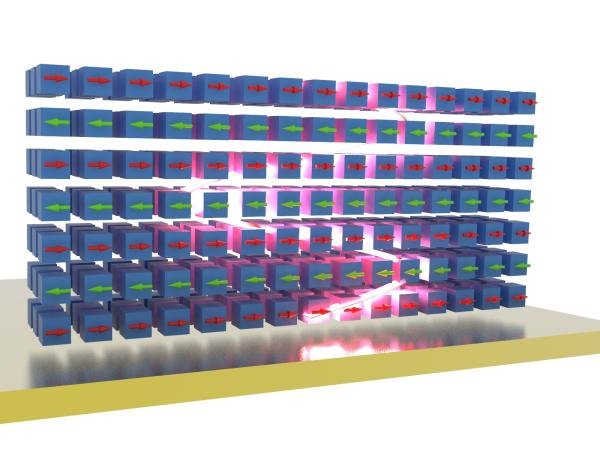Scientists Trap Light Inside a Magnet
A new study led by Vinod M. Menon and his research group at The City College of New York shows that trapping light inside magnetic materials may dramatically enhance their intrinsic properties. Strong optical responses of magnets are important for the development of magnetic lasers and magneto-optical memory devices, as well as for emerging quantum transduction applications.
In their new article in the journal "Nature," Menon and his team report the properties of a layered magnet that hosts strongly bound excitons -- quasiparticles with particularly strong optical interactions. Because of that, the material is capable of trapping light -- all by itself. As their experiments show, the optical responses of this material to magnetic phenomena are orders of magnitude stronger than those in typical magnets. "Since the light bounces back and forth inside the magnet, interactions are genuinely enhanced," said Dr. Florian Dirnberger, the lead-author of the study. "To give an example, when we apply an external magnetic field the near-infrared reflection of light is altered so much, the material basically changes its color. That's a pretty strong magneto-optic response."
"Ordinarily, light does not respond so strongly to magnetism," said Menon. "This is why technological applications based on magneto-optic effects often require the implementation of sensitive optical detection schemes.”

On how the advances can benefit ordinary people, study co-author Jiamin Quan said: “Technological applications of magnetic materials today are mostly related to magneto-electric phenomena. Given such strong interactions between magnetism and light, we can now hope to one day create magnetic lasers and may reconsider old concepts of optically controlled magnetic memory." Rezlind Bushati, a graduate student in the Menon group, also contributed to the experimental work.
Written by Jay Mwamba for City College of New York News
Image by Rezlind Bushati
